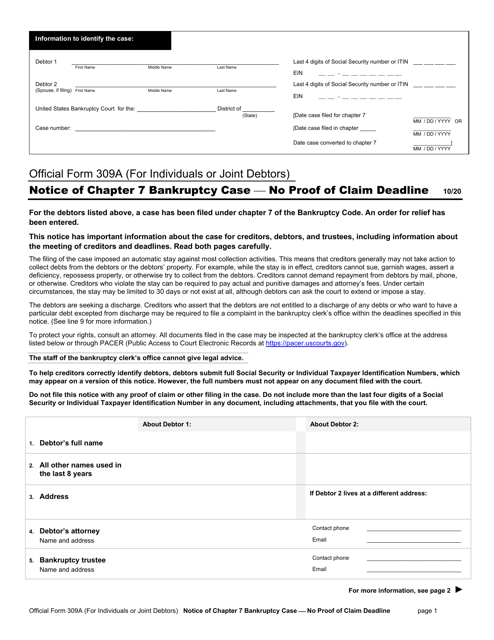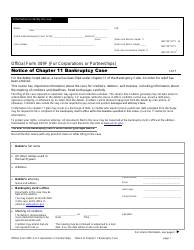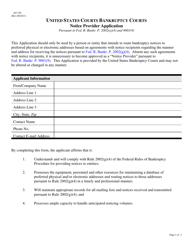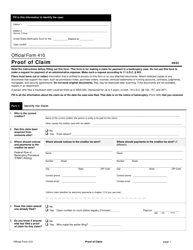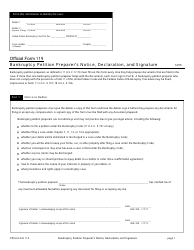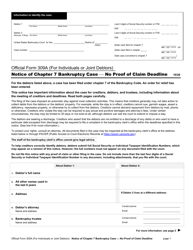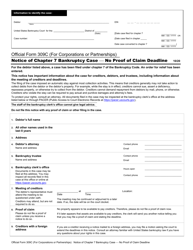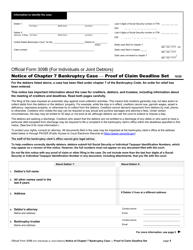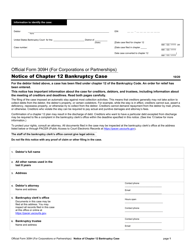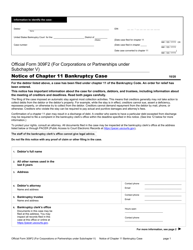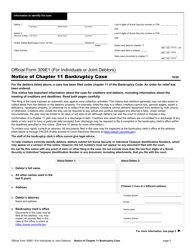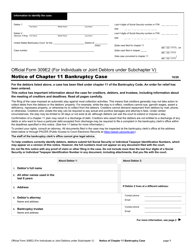Official Form 309A Notice of Chapter 7 Bankruptcy Case - No Proof of Claim Deadline (For Individuals or Joint Debtors)
What Is Official Form 309A?
This is a legal form that was released by the United States Courts on October 1, 2020 and used country-wide. As of today, no separate filing guidelines for the form are provided by the issuing department.
FAQ
Q: What is Form 309A?A: Form 309A is the Official Notice of Chapter 7 Bankruptcy Case - No Proof of Claim Deadline specifically for individuals or joint debtors.
Q: What does Chapter 7 bankruptcy mean?A: Chapter 7 bankruptcy is a type of bankruptcy that involves the liquidation of assets to pay off debts. It is often used by individuals or businesses to get a fresh financial start.
Q: Who should use Form 309A?A: Form 309A should be used by individuals or joint debtors who have filed for Chapter 7 bankruptcy and want to notify creditors of the deadline to submit proof of claim.
Q: What is the purpose of Form 309A?A: The purpose of Form 309A is to inform creditors that there is no deadline to submit a proof of claim in the Chapter 7 bankruptcy case of an individual or joint debtor.
Q: What is a proof of claim?A: A proof of claim is a document submitted by a creditor in a bankruptcy case, outlining the debt owed to them by the debtor and the supporting documentation.
Q: Why is there no proof of claim deadline in this case?A: There is no proof of claim deadline in this case because the individual or joint debtor filing for Chapter 7 bankruptcy does not have any assets available to distribute to creditors.
Q: Are there any other deadlines or requirements for creditors in this bankruptcy case?A: No, this specific bankruptcy case does not have any other deadlines or requirements for creditors due to the lack of assets available for distribution.
Q: What should I do if I am a creditor in this bankruptcy case?A: As a creditor in this bankruptcy case, you do not need to take any action at this time since there is no deadline to submit a proof of claim.
Q: Is Chapter 7 bankruptcy the only type of bankruptcy?A: No, Chapter 7 bankruptcy is one of several types of bankruptcy available under the United States bankruptcy code. Other types include Chapter 11 and Chapter 13 bankruptcies.
